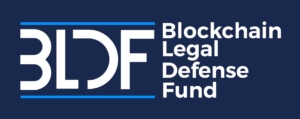SEC v. Binance: What This Landmark Case Means for Blockchain Innovation
The Securities and Exchange Commission (SEC) versus Binance case is one of the most significant legal battles in the cryptocurrency space, and its outcome could have far-reaching consequences for the blockchain industry. In June 2024, the U.S. SEC filed multiple charges against Binance, accusing the world’s largest cryptocurrency exchange of various securities violations. As the case unfolds, it is shaping the regulatory landscape for blockchain projects worldwide.
Background of the SEC vs. Binance Case
The SEC’s lawsuit against Binance, which began in June 2024, marks a continuation of the agency’s crackdown on major cryptocurrency platforms. The SEC accused Binance of selling unregistered securities, operating an unregistered exchange, and engaging in practices that misled investors. Central to the case are Binance’s BNB token sales and its staking services, which the SEC argues should have been registered as securities under U.S. law.
This case is part of a broader regulatory push by the SEC to assert its authority over the cryptocurrency market, targeting centralized exchanges and Initial Coin Offerings (ICOs) that the SEC believes violate federal securities laws. Binance has denied the allegations, maintaining that it operates within the bounds of international law and that its products, such as BNB and BUSD (Binance USD), are not securities.
Key Allegations Against Binance
The SEC’s charges against Binance can be broken down into several key areas:
Unregistered Securities Offerings: The SEC claims that Binance’s sale of its BNB tokens and its various lending and staking programs constituted unregistered securities offerings. The SEC argues that these products meet the criteria outlined in the Howey Test, which determines whether a financial product qualifies as a security.
Misleading Investors: Another central allegation is that Binance misled investors about its internal controls and the security of its assets. According to the SEC, Binance’s operations lacked the transparency and oversight necessary to protect investors, particularly in its BNB Vault program, which allowed users to stake their BNB tokens for rewards.
Failure to Register as a Securities Exchange: The SEC also alleges that Binance operated as an unregistered securities exchange. By facilitating trades in assets that the SEC views as securities, such as BNB, the exchange should have registered with the SEC as a broker-dealer and clearing agency.
The Legal Impact on Blockchain Innovation
The SEC’s case against Binance highlights several key legal issues that could affect the future of blockchain innovation:
1. The Definition of a Security
At the heart of the case is the question of whether digital tokens such as BNB qualify as securities. The SEC has increasingly taken the stance that most cryptocurrencies, aside from Bitcoin, are securities under U.S. law. This definition has major implications for blockchain projects that issue tokens, as they may be required to register with the SEC and comply with stringent regulations. This could place significant burdens on smaller blockchain startups that lack the resources to navigate complex legal requirements.
2. Compliance Costs for Blockchain Projects
If the SEC prevails in its case against Binance, it could set a precedent that requires many blockchain projects to register their tokens and platforms as securities. This would significantly increase the cost of compliance for blockchain developers, particularly those who offer staking, lending, or token sales. The legal and financial burdens could stifle innovation, as many smaller projects might be deterred from launching in the U.S. market due to the risk of enforcement actions.
3. Centralized vs. Decentralized Platforms
The SEC’s focus on centralized exchanges like Binance underscores a growing regulatory divide between centralized and decentralized platforms. While centralized exchanges are easier targets for regulatory enforcement, decentralized platforms, or DeFi, present a more difficult challenge for regulators. This case could lead to increased scrutiny of centralized platforms, potentially pushing more blockchain projects to explore decentralized alternatives to avoid regulatory oversight.
4. Global Regulatory Implications
Although the SEC’s case against Binance is focused on U.S. laws, its impact will be felt globally. Binance operates in multiple jurisdictions, and the outcome of the case could prompt other regulators to take similar actions. For example, the European Union’s Markets in Crypto-Assets (MiCA) regulation is set to impose strict rules on cryptocurrency platforms, and the Binance case could influence how European regulators enforce these rules(
Moreover, as blockchain technology becomes more intertwined with financial markets, global regulators may seek to create more unified frameworks for overseeing digital assets. Countries such as Japan and Singapore have already established clear regulatory frameworks for digital assets, and the Binance case could accelerate the development of similar regulations worldwide.
The Future of Binance and Cryptocurrency Exchanges
As of October 2024, Binance continues to operate, but the legal pressure from the SEC has prompted significant changes in how the exchange does business. In response to the lawsuit, Binance has halted certain services in the U.S. and has moved to comply with international regulations in other markets. The case could lead to stricter requirements for centralized exchanges, forcing them to implement more robust internal controls and compliance measures.
If Binance prevails, it could embolden other cryptocurrency exchanges to resist SEC enforcement efforts, potentially leading to more legal battles over the classification of digital assets. However, if the SEC wins, it could pave the way for a more tightly regulated cryptocurrency industry, with greater emphasis on investor protection and transparency.
The SEC’s case against Binance is shaping up to be a pivotal moment for the blockchain and cryptocurrency industries. As the case moves through the courts, its outcome will likely influence how digital assets are regulated in the U.S. and abroad. For blockchain developers and exchanges, the Binance case underscores the importance of understanding and complying with securities laws to avoid legal pitfalls that could jeopardize their projects.






Leave a Reply
Want to join the discussion?Feel free to contribute!